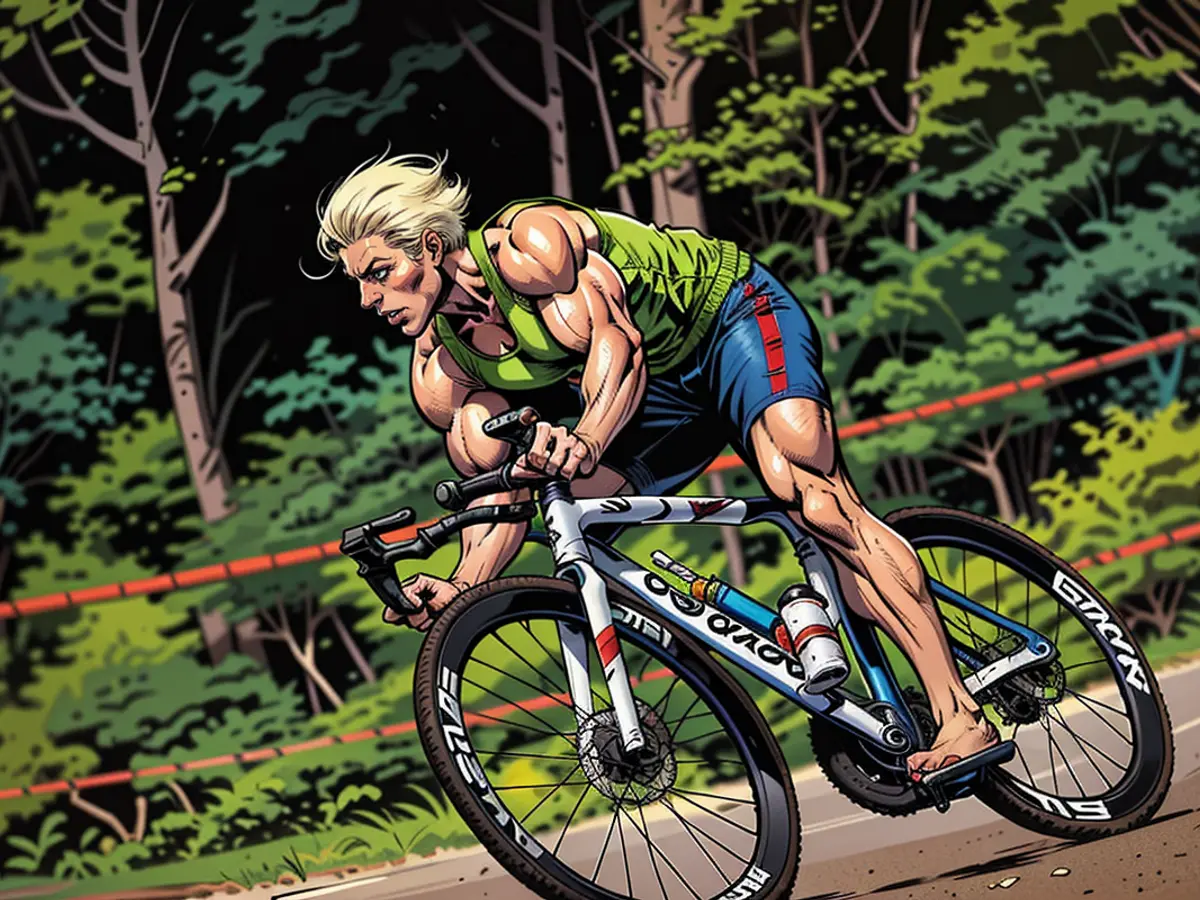Cycling titan Pogacacar speeds towards securing the World Championship crown
In the home stretch of his breathtaking solo charge, Tadej Pogacar, the renowned cyclist from Slovenia, relinquished his grasp on the handlebars and triumphantly waved his arms towards the heavens. With bravery, hostility, and inexplicable ease, this cycling prodigy transformed the WM battle against Olympic champion Remco Evenepoel into a one-man show, mirroring the legendary Eddy Merckx. Pogacar secured his first WM title on a damp Sunday in Zurich after a grueling 51-kilometer solo venture, culminating an extraordinary year that included victories in the Giro d'Italia and the Tour de France.
"I can't fathom what just transpired. Perhaps it was an imprudent assault, I can't say what was going through my mind," declared the jubilant Pogacar, who initiated his first assault 100 kilometers prior to the conclusion: "But it worked out in the end. It was truly challenging."
Pogacar joins the elite club of cyclists consisting of Merckx (1974) and Stephen Roche (1987) who have achieved the "cycling's triple crown" within a year, which includes victories in two prestigious stage races and the WM title. However, the overall race, spanning 273.9 kilometers, was tainted by the heartbreaking demise of Swiss junior Muriel Furrer. The 18-year-old suffered fatal head injuries after crashing in a forest section during the junior women's race on Thursday and passed away approximately 24 hours later. Pogacar and his peers honored her memory with a moment of silence before the start.
German cyclists in supporting roles
Upon crossing the finish line at the Sechseläutenplatz, adjacent to Lake Zurich, Pogacar maintained a lead of 34 seconds over Australian Ben O'Connor. Bronze medal honors went to the dethroned title defender Mathieu van der Poel from the Netherlands (+0:58 minutes). Evenepoel settled for fifth place. The six German cyclists primarily served as support crew. Simon Geschke, set to retire from WM competition after this race, was among the first group of breakaway cyclists on Day 1. Later, Florian Lipowitz, who finished seventh in the Vuelta in Spain, joined the fray. They had little impact against Pogacar. The last German WM title was secured 58 years ago, in 1966, by Rudi Altig.
Pogacar commenced the day with a composed demeanor. "He was incredibly laid-back, even missed his first alarm call," reported Urska Zigart, his partner, who had finished 24th in the women's race the day prior. Pogacar anticipated a "strenuous, lengthy race." Evenepoel, riding a lavishly adorned bicycle and sporting a gold helmet, displayed an equally chill vibe and aimed to "preserve as much energy as possible for the finale." However, the tranquility was shattered 100 kilometers into the race, when Pogacar spearheaded the initial assault and shocked his rivals. Pogacar and a breakaway group, which included Lipowitz, bridged the gap to the leaders, but quickly distanced themselves shortly thereafter. The pressure on Evenepoel and his peers escalated.
Pogacar raced ahead with his teammate at UAE Emirates, Pavel Sivakov. Sivakov fell back 51 kilometers before the finish, and Pogacar commenced his remarkable solo endeavor. Disagreement arose in the pursuit, with an visibly dissatisfied Evenepoel engaging in heated gestures with his contenders. Pogacar remained in control, and his advantage remained just shy of a minute.
Pogacar's outstanding performance at the World Championships secured him an additional title, adding to his victories in the Giro d'Italia and Tour de France, aiming to emulate the achievements of Merckx and Roche. In the junior women's race, however, tragedy struck as Swiss junior Muriel Furrer suffered fatal injuries and passed away after a crash during the race, leaving her peers and the cycling community in mourning.
Following his solo charge, German cyclists mainly served as support crew, with Simon Geschke and Florian Lipowitz making notable appearances. Despite their best efforts, they were unable to challenge Pogacar's dominance, reflecting the challenging journey to reclaim Germany's last World Championship title, which dates back to 1966 with Rudi Altig.








